All the Heart-Healthy Foods and Nutrients Every Woman Should Add to Her Diet

Over the course of your lifetime, your heart beats approximately 2.5 billion times, according to Harvard Medical School. Make sure it completes each one of those beats with strength and power by feeding it the healthiest fuel possible. Your heart is responsible for pushing blood throughout your body, transporting oxygen, fuel, hormones, and more from head to toe and everywhere in between. It’s a big job, but these easy dietary changes can help protect your heart, and help it function at its best. We talked to some of our go-to experts, including Karen Ansel, MS, RDN, to find out which fruits, vegetables, and grains you should eat—and why—to keep your ticker healthy.
Leafy Greens
Dark green vegetables including kale and spinach are a great source of Vitamin K, according to Healthline, which helps your arteries and “promotes proper blood clotting.”

Tuna
Tuna, along with other fatty fish like mackerel and sardines, is full of omega-3 fatty acids. According to the Mayo Clinic, these omega-3 fatty acids decrease triglycerides, lower blood pressure, reduce clotting, and reduce irregular heartbeats, all of which are beneficial for overall heart health.

Edamame
Edamame beans are full of soy protein, which can be a great replacement for animal protein, according to the American Heart Association. The AHA found that substituting animal protein for soy protein could lead to a reduction in LDL cholesterol (the bad kind).
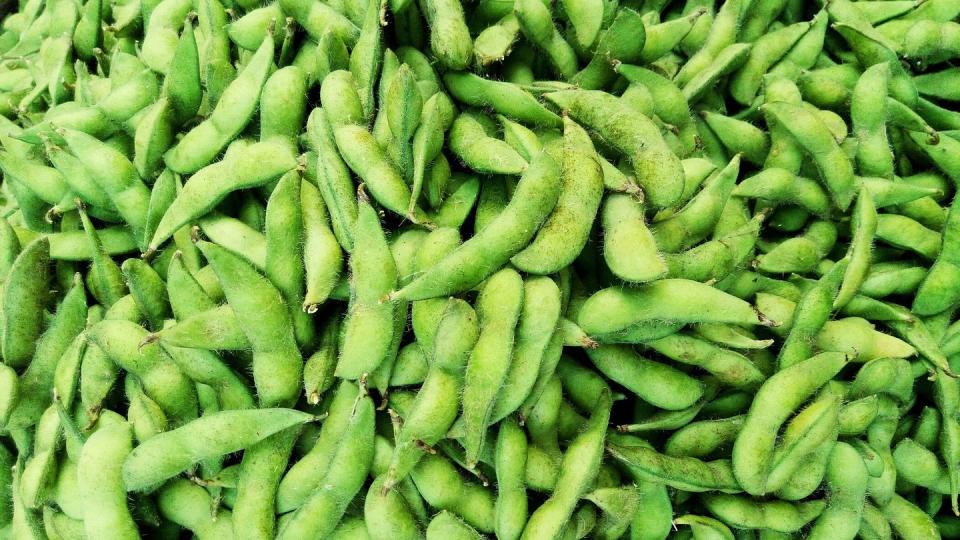
Avocados
As if you needed an excuse to eat more avocados, research by the American Heart Association found that eating an avocado a day may lower your risk of "bad" LDL cholesterol, because these fruits have a rich nutrient profile and don't contain any sodium.
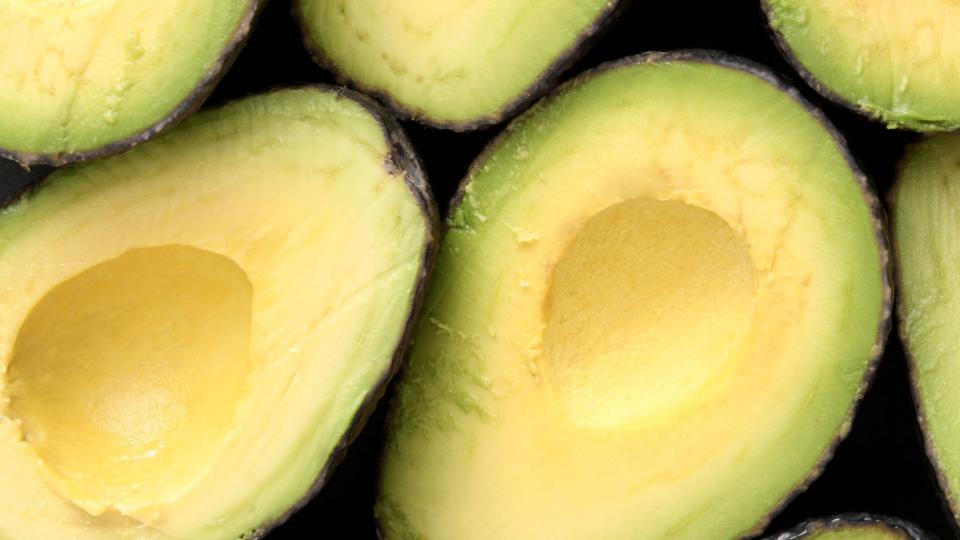
Whole Grains
Unlike refined carbs, whole grains — like brown rice, oats, rye, barley, buckwheat, and quinoa — are fibrous foods packed with nutrients. According to a review published in BMJ, eating three or more servings of whole grains a day may reduce your risk of heart disease as much as 22%. The fiber, B vitamins, iron, magnesium, and zinc in whole grains improve your cholesterol and carry oxygen to the blood to lower your risk of heart disease.
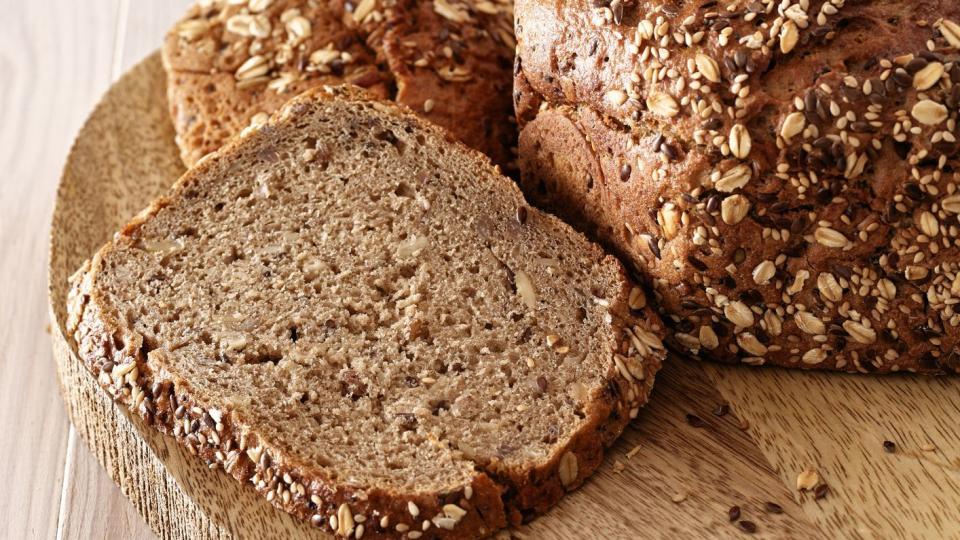
Beans
In addition to being high in protein, beans are packed with heart-healthy nutrients like B vitamins and potassium. According to Healthline, eating beans can reduce your body's blood levels of triglycerides and cholesterol, which the AHA flags as risk factors of cardiovascular disease.
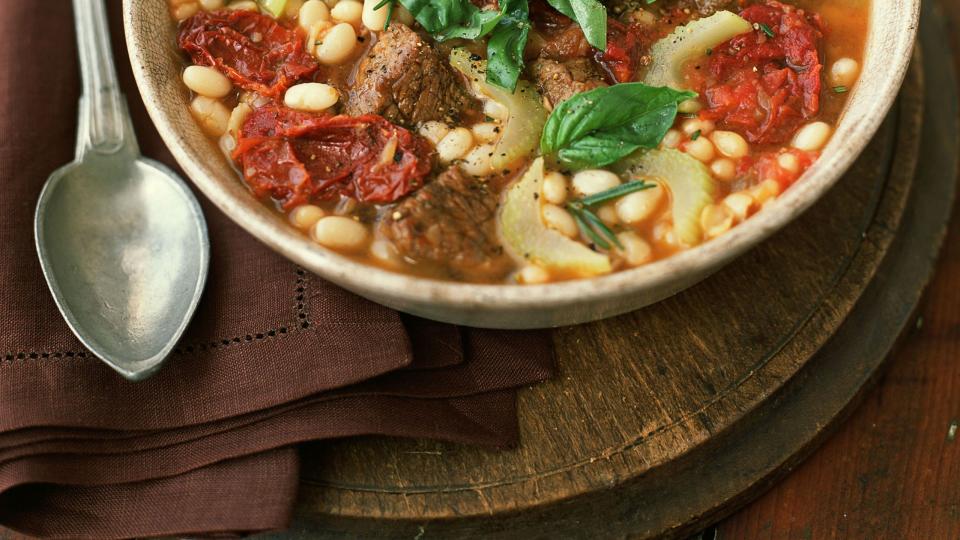
Dark Chocolate
The sweetest way to lower your cholesterol? Eating dark chocolate! According to a study published in the Journal of the American Heart Association, having 2/3 Tbsp of cocoa with 1/3 cup of almonds each day reduces your LDL cholesterol levels to prevent heart disease.
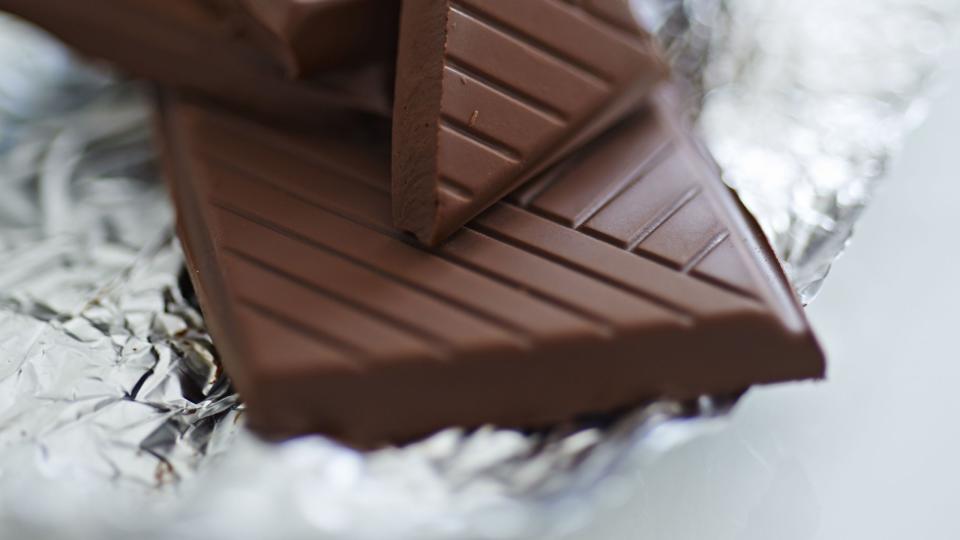
Chia Seeds
According to the AHA, high blood pressure is a huge risk factor for heart disease. A small study published in Plant Foods for Human Nutrition gave 35 g a day of either chia flour or a placebo to people with hypertension for 12 weeks. The results? A significant reduction in blood pressure for those who consumed the chia flour.
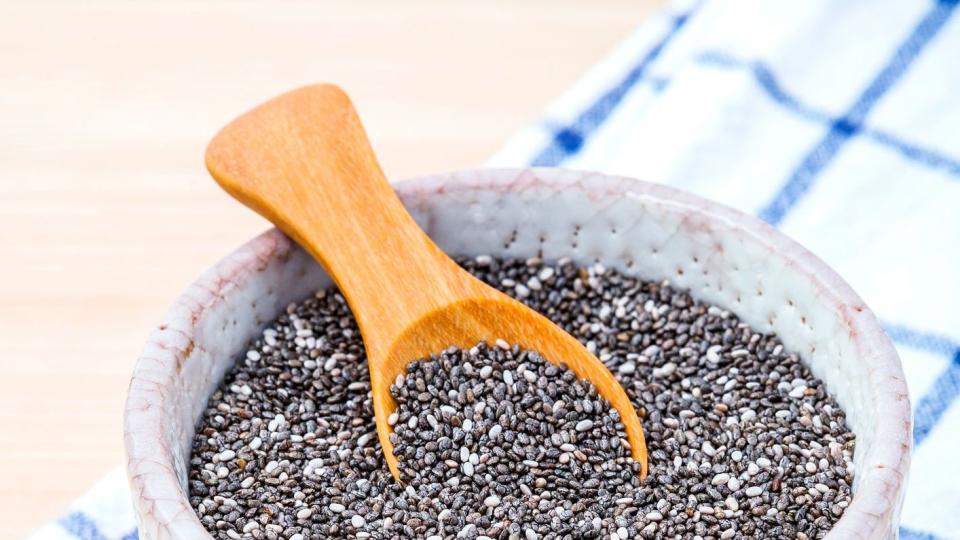
Dates
Dates are rich in potassium, an important nutrient that plays a role in managing blood pressure, and a fruit that most people don't get enough of, says Penny Kris-Etherton, PhD, RDN, professor of nutrition at Penn State University. According to a study published in the Journal of Agricultural and Food Chemistry, dates may also help cut levels of triglycerides, which are fats in the blood associated with heart attacks and strokes. Dates are high in natural sugar, but low on the glycemic index, meaning they don't cause spikes in blood sugar. One date contains about 66 calories, so stick with two per day as a snack.
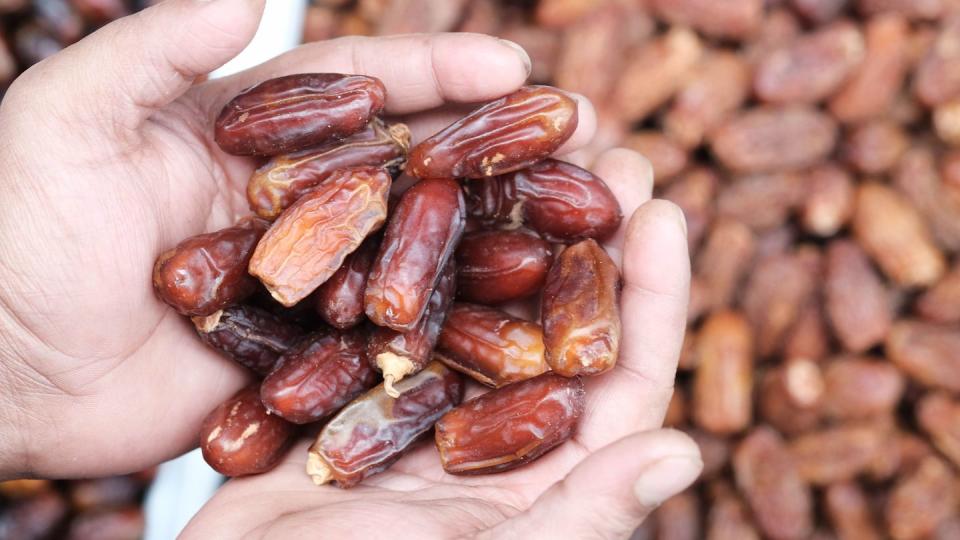
Pineapple
According to Medical News Today, one cup of pineapple has more than 100% of your day's vitamin C needs. Vitamin C aids the heart by fighting free radicals (a.k.a. molecules that damage heart cells).
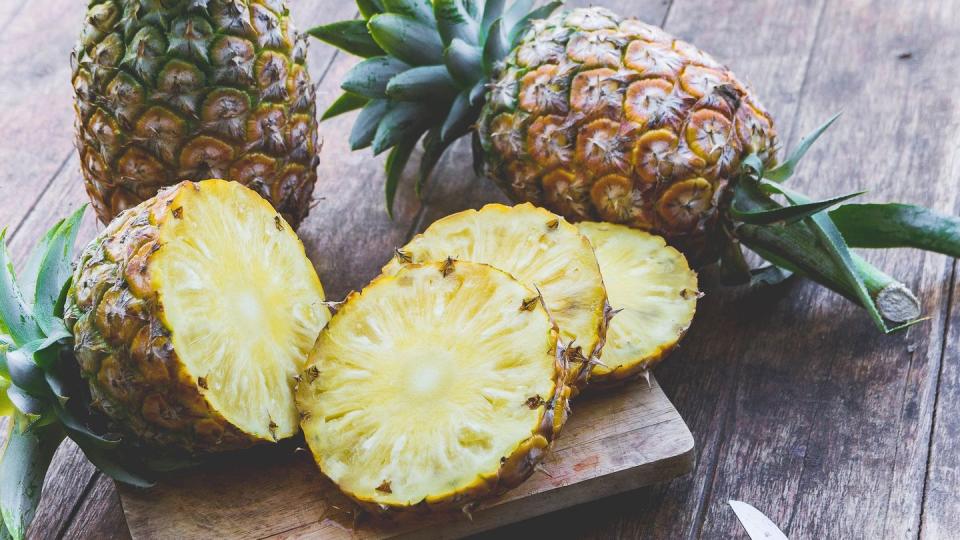
Corn
Nutrients like lutein and zeaxanthin in corn keep your arteries from thickening, which is one of the main causes of heart disease. As a bonus, they're also very good for your eye health.
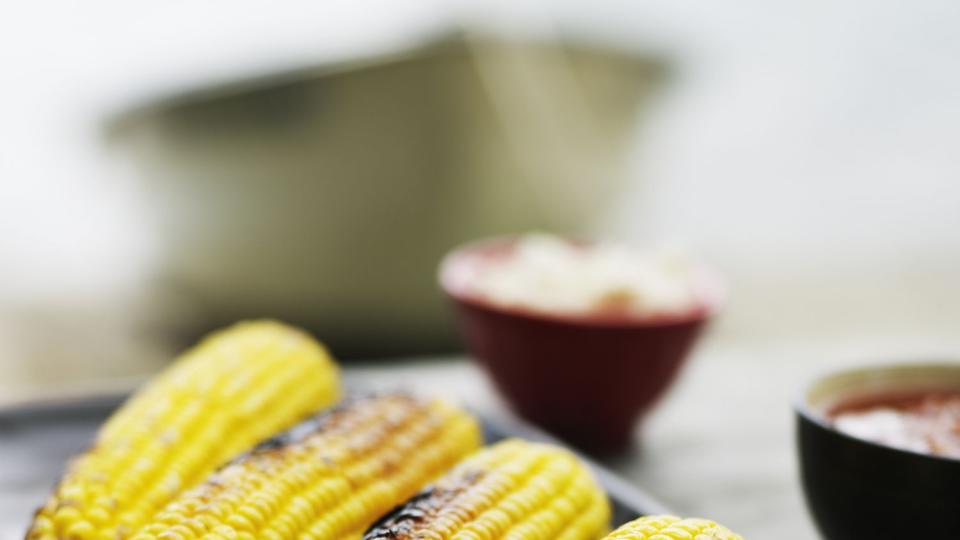
Cashews
Cashews are a great source of magnesium, a mineral that may help lower blood pressure. The average woman between the ages of 30 and 50 should aim for 320 mg of magnesium a day, and one ounce (about 1/4 cup) of cashews gives you 74 mg (in other words, about 23% of your daily magnesium needs).

Almonds
Though they're higher in fat than other foods, almonds contain healthy unsaturated fats, which is filling and good for your heart. One ounce of almonds (about 1/4 cup) also packs 80 mg of magnesium, or about 25%, of the average woman's daily recommended magnesium requirements.
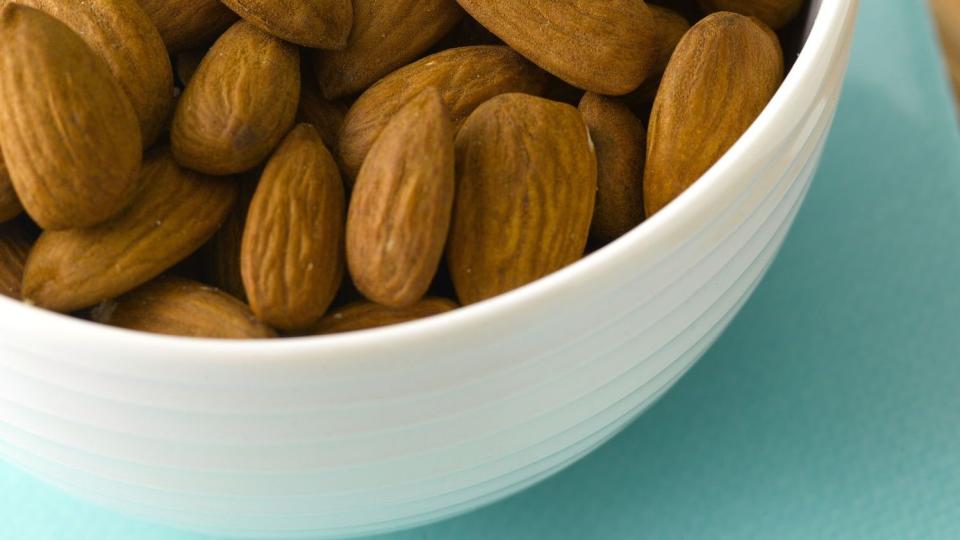
Bananas
Bananas are a good source of heart-healthy antioxidants like potassium, which may reduce the risk of heart disease. Potassium helps lower blood pressure by countering high sodium levels and protecting against hardening of the arteries. According to Medical News Today, the recommended intake of potassium is 4,700 mg a day — and one medium banana has 422 mg of potassium.

Garlic
The sulfur content responsible for garlic's pungent smell is actually good for your heart. Researchers at the University of Alabama at Birmingham found that it helps produce hydrogen sulfide, a gas that relaxes blood vessels and keeps your blood pressure under control. To activate garlic's health-promoting enzymes, crush it, then let it sit for 10 minutes before continuing with your recipe.

Brussels Sprouts
Brussels sprouts are an excellent source of fiber. According to Jennifer Mieres, M.D., professor of cardiology at Northwell Health, each 7-gram increase in dietary fiber per day can lower your risk of heart disease by 9%, so getting your fill is a crucial way to improve heart health. The American Heart Association recommends 25 g of fiber a day, and 1 cup of Brussels sprouts has 3.3 g fiber.
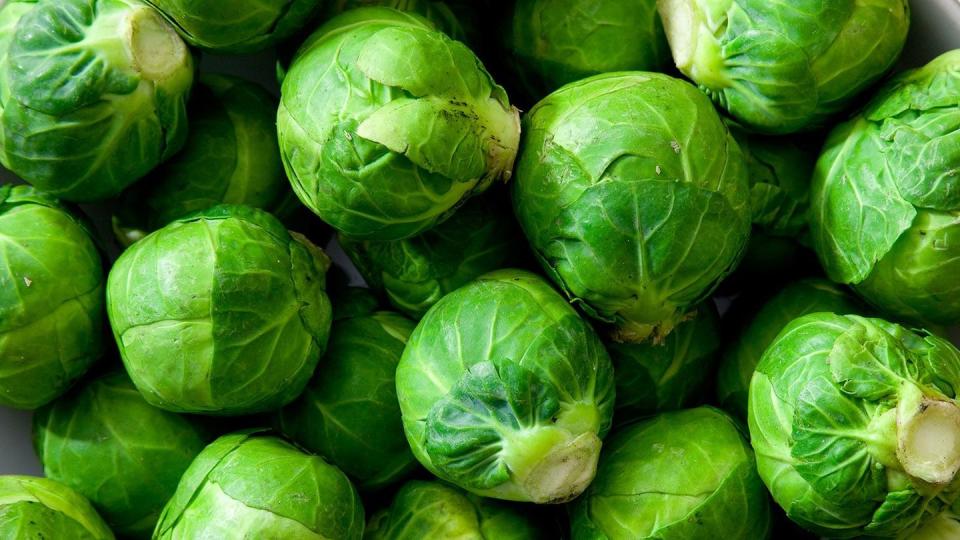
Mushrooms
Research from the University of Copenhagen shows that adults with low levels of vitamin D are at a much higher risk of having a heart attack. Luckily, mushrooms are one of the few food sources of vitamin D. To increase the vitamin D levels in mushrooms, spread them on a dish and leave them outside in the sun for at least 30 minutes between 10 a.m. and 3 p.m. Mushrooms produce the sunshine vitamin the same way you do: through exposure to sunlight or ultraviolet light. If they say "vitamin D-enhanced" or "vitamin D-fortified" on the carton, you can skip this step.

Kale
"Like magnesium, calcium assists blood vessels in relaxing and constricting," says Karen Collins, R.D.N. To get enough calcium, choose dark leafy greens like kale. Combine them with mushrooms, because vitamin D is essential in helping your body absorb the calcium. The two nutrients work in tandem!

Berries
There's nothing more refreshing than a bowl of berries. According to a recent study published in Science Daily, consuming three or more servings of strawberries and blueberries per week helped reduce the risk of heart attacks in women in their 30s, 40s, and 50s by as much as one-third.
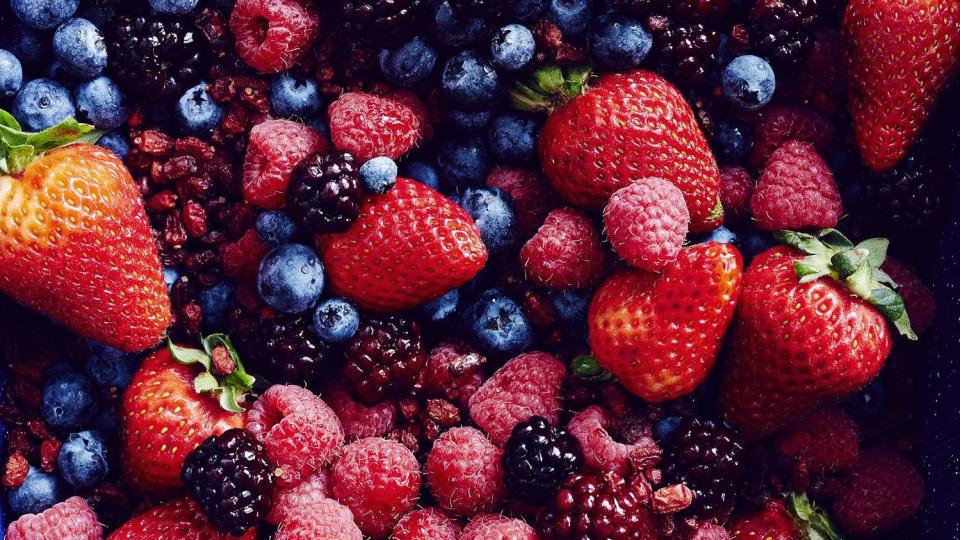
Peanut Butter
Peanut butter is still one of the best heart-healthy foods. Although the creamy spread is high in fat, it's mostly the unsaturated — or healthy — kind of fat. Plus, "people who regularly include nuts or peanut butter in their diet are less likely to develop heart disease or diabetes," says Walter Willett, M.D., DrPH, chair of nutrition at the Harvard Chan School of Public Health. Try adding a spoonful of peanut butter to your breakfast smoothie or using it as the base for a noodle sauce for an extra kick of protein.

Watermelon
According to the USDA, watermelon is one nature's top sources of lycopene, a powerful antioxidant. One all-male study published in Neurology found that people who had the most lycopene in their bloodstream were 55% less likely to have a stroke than those who had the least.

Salmon
Salmon is a good source of omega-3s fatty acids, which are are healthy sources of fat. According to a review published in A Peer-Reviewed Journal for Managed Care and Hospital Formulary Management, two omega-3s, EPA, and DHA, are strongly associated with heart health because they decrease triglyceride levels and help keep blood vessels from clogging. They're most plentiful in seafood such as salmon, trout, mussels, crab, and albacore tuna. According to Healthline, having at least two servings of salmon per week can help meet your omega-3 fatty acid needs, which is about 250-500 mg of combined EPA and DHA per day.
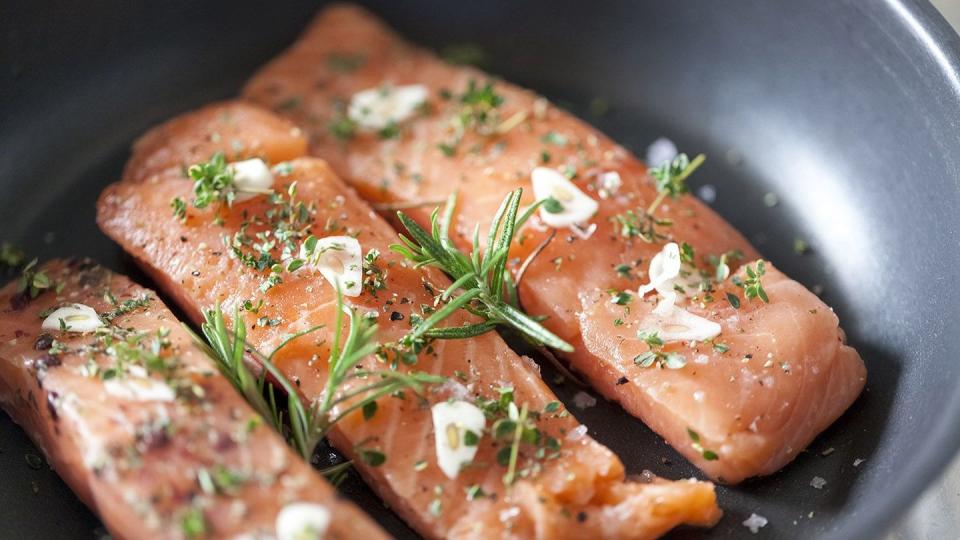
Oranges
Though they're known for their vitamin C content, oranges also contain 3 g fiber per fruit, which may lower cholesterol levels. The white pith and orange peel contain pectin, a type of soluble fiber that binds to LDL ("bad") cholesterol before it is absorbed in the gut. "Pectin can help keep your cholesterol in check," says David Maron, M.D., a cardiologist at Stanford University.
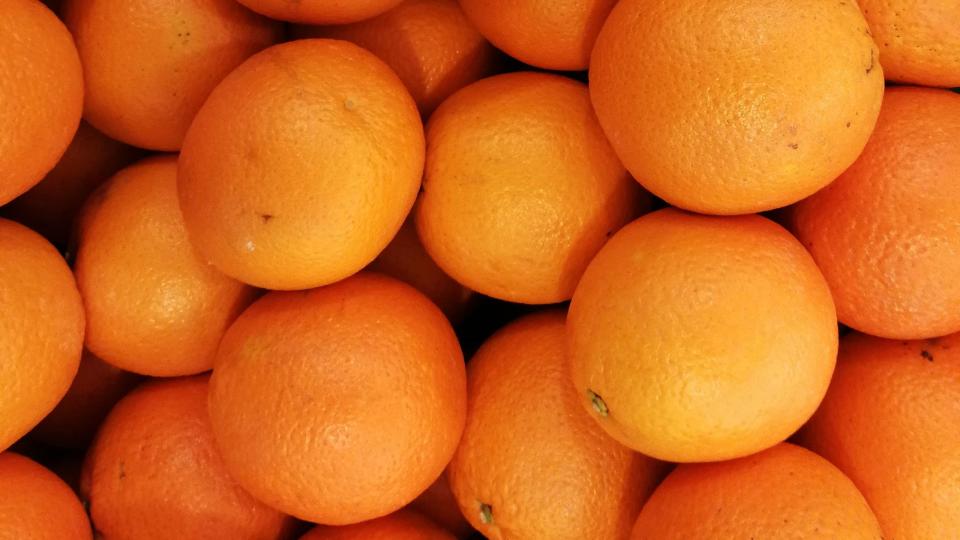
You Might Also Like


